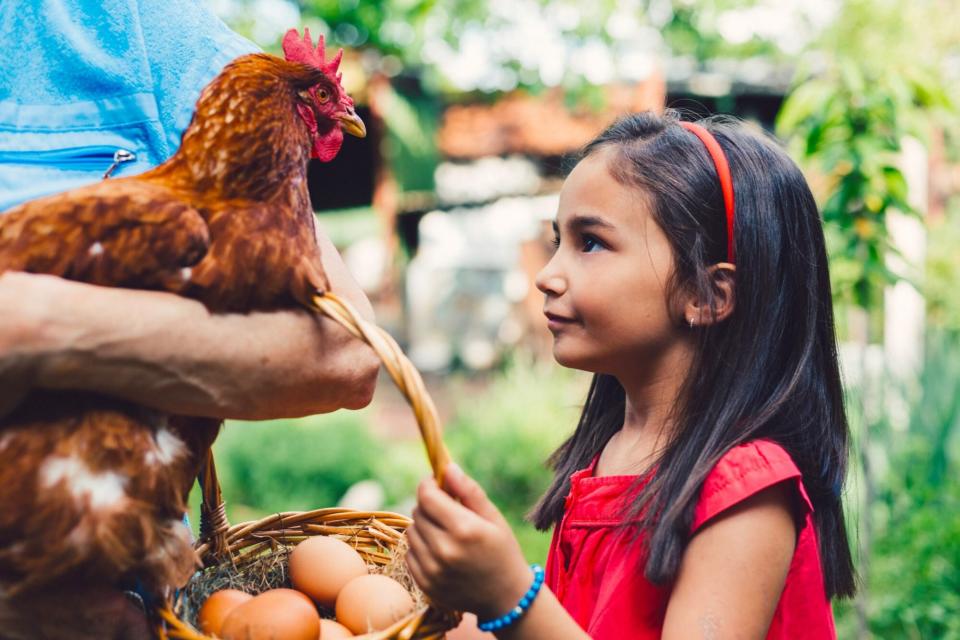CDC Warns of Salmonella Outbreak Linked to Backyard Chickens—and Children Under 5 Seem Most Affected
Calling all chicken owners! The Centers for Disease Control and Prevention (CDC) is currently investigating Salmonella infections connected to backyard poultry. Outbreaks have been reported in 46 states, and they include a total of 474 illnesses. One-third of them have been in children younger than 5 years old, who are more susceptible to severe symptoms.
According to the CDC, 103 people have been hospitalized from the outbreak, and one person in Indiana died. "The true number of sick people is likely much higher than the reported number, as many people recover without medical care and are not tested for Salmonella," adds the CDC.
Symptoms of Salmonella infection include fever, stomach cramps, and diarrhea. These signs usually appear within 6 hours to 6 days of exposure, and they stick around for 4 to 7 days. While most patients don't need any treatment, hospitalization may be required for severe infection. Salmonella can be especially dangerous for those with compromised immune systems, young children (less than 5 years old), adults older than 65.
The CDC started its investigation after interviews with sick people showed a link between Salmonella infections and backyard poultry. According to the organization, even clean-looking chickens can carry Salmonella, and it can spread easily to others in the coop.

Getty Images.
If you have backyard chickens, the CDC recommends taking the following precautions to stay safe:
Wash your hands thoroughly with soap and water for 20 seconds after handling chickens or flock supplies. If you don't have access to soap and water, hand sanitizer can work in a pinch.
Don't bring chickens or supplies inside of your home.
Keep young children away from the flock. Don't let them touch the birds (including chicks or ducklings) or their supplies. Older children should be supervised around the birds.
Refrain from cuddling or kissing the chickens.
Because swallowing Salmonella germs can make you sick, don't eat or drink near the coop.
Use best practices when handling eggs. This includes collecting eggs often, throwing away cracked eggs, wiping dirt off the surfaces without water (liquid can help germs get inside the eggs), storing them in the refrigerator, and cooking them to an internal temperature of 160° F.
Call your doctor if you notice severe Salmonella symptoms, which include diarrhea along with high fever (greater than 102° F) , diarrhea that's worsening or bloody, or excessive vomiting. Also alert your provider if you notice signs of dehydration.
Call your state's health department with any questions about the Salmonella outbreak.

